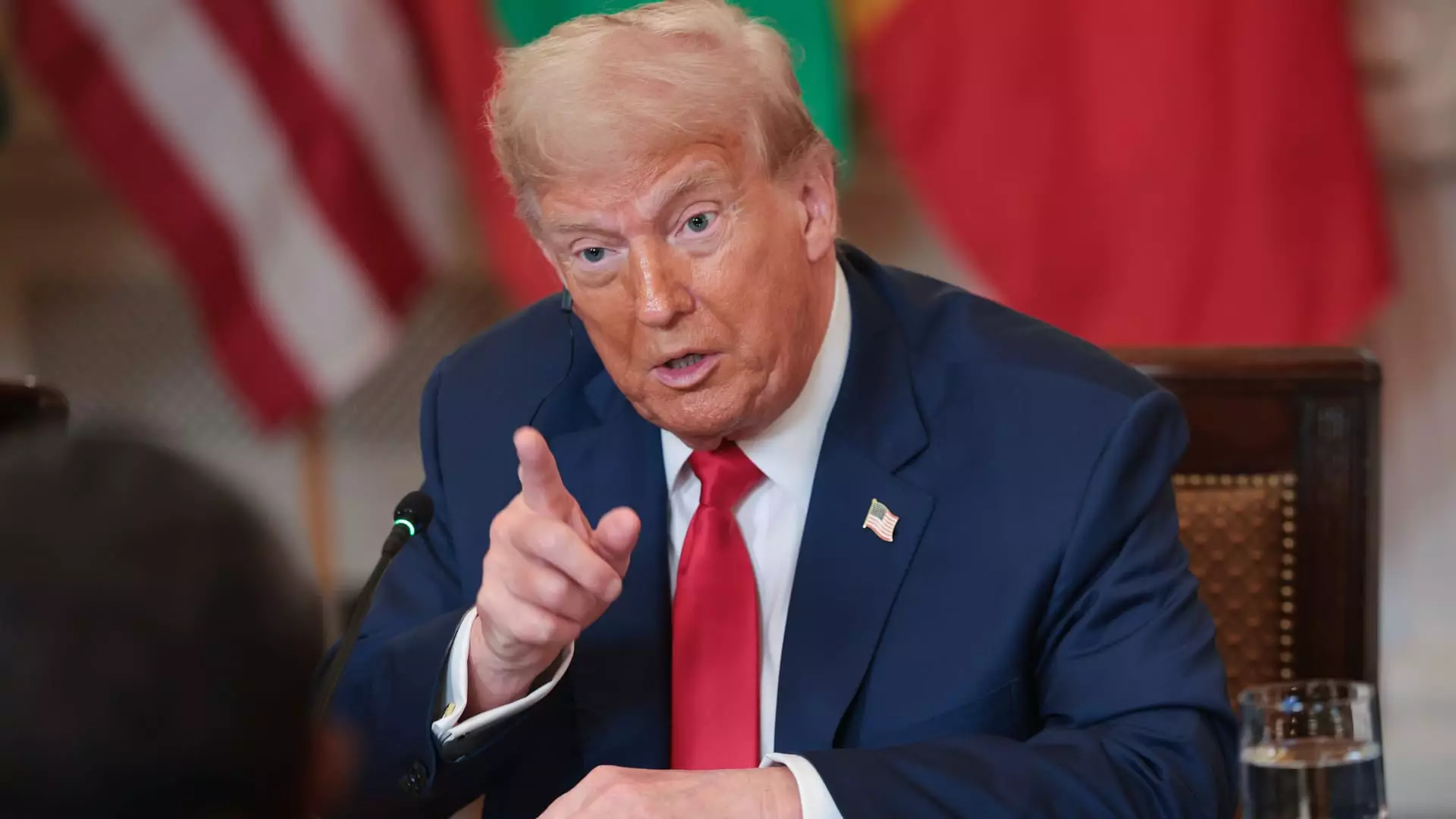The recent United States move to impose a punitive 50% tariff on Brazil exemplifies a concerning shift in international economic policy—one that conflates political motives with trade strategy. Beyond merely protecting domestic industries, this action signals an alarming tendency: leveraging economic tools to punish perceived political enemies rather than addressing genuine trade imbalances. Reacting to Brazil’s internal political struggles and legal decisions, particularly regarding former President Jair Bolsonaro, reveals a troubling politicization of economic diplomacy. It dismisses the complexities of Brazil’s democracy and instead reduces the relationship to a tool for retribution, which is fundamentally unjust and destabilizing.
This form of economic retaliation neglects the importance of context and nuance in international relations. Brazil, as a significant regional player, has historically maintained a goods trade surplus with the U.S., indicating a relatively balanced or even favorable trade relationship. To abruptly escalate tariffs based on internal political developments—such as Bolsonaro’s legal battles—appears to be more hubris than strategic foresight. Rather than fostering constructive dialogue, this approach fosters suspicion and hostility, undermining multilateral cooperation and global economic stability.
The Illusion of a “Fair” Trade Relationship
President Trump claims that these tariffs are a necessary response to “unfair” trade practices and “unsustainable deficits,” yet the facts tell a different story. In reality, the U.S. enjoys a substantial trade surplus with Brazil—$7.4 billion in 2024 alone—suggesting that the economic relationship is more balanced than the rhetoric lets on. The introduction of a 50% tariff not only inflationary shocks U.S. manufacturers and consumers but also signals a protectionist shift that jeopardizes the broader prosperity of both nations.
Moreover, Trump’s framing of Brazil’s trade policies and political upheavals as threats to U.S. security and economic stability appears exaggerated and politically motivated. While transparency and fair trade are vital, retaliatory tariffs based on political disputes diverts focus from substantive negotiations. Instead of engaging with Brazil through diplomatic means or addressing specific trade issues, the Administration seems intent on punishing the country as a form of ideological symbolism—an act that diminishes the credibility of U.S. commitment to global economic leadership.
The Threat to Global Stability and the Free Market Order
This type of tariff strategy—where economic measures are weaponized to serve partisan interests—poses a significant threat to the principles of free trade that have underpinned the post-World War II order. By adopting a punitive stance toward a key trading partner like Brazil, the U.S. risks prompting reciprocal actions that could escalate into wider global trade tensions. The vague language about “possible adjustments” and threats to increase tariffs further fuels uncertainty, which can have far-reaching consequences beyond bilateral ties.
In effect, this approach shifts the focus from cooperation and mutual benefit to coercion and dominance. It erodes the foundations of a rules-based international trading system, favoring nationalist and protectionist instincts over fairness and reciprocity. Countries like Brazil, which are developing their economies and strengthening their democratic institutions, deserve engagement rooted in dialogue rather than punitive tariffs inflicted as political payback.
Questioning the Justification: Is It Truly about Trade or Politics?
Trump’s public justification for these tariffs—accusations of “attacks on free elections” and “unfair trade practices”—betrays a skewed prioritization of domestic political narratives over genuine economic interests. It is difficult to reconcile these claims with the actual trade figures, legal circumstances, and diplomatic relations. Many of these claims seem designed more to justify the escalation than to address specific violations or concerns.
Furthermore, the broader implications for international law and diplomatic norms are troubling. Using tariffs as a political cudgel risks undermining the credibility of international institutions and legal frameworks designed to resolve disputes impartially. When leaders weaponize trade policies for domestic political messaging, the entire global system becomes less predictable and more prone to conflict.
The Danger of Conflating Democracy with Trade Policy
Perhaps most problematic is the conflation of internal political battles—such as Bolsonaro’s legal issues—and trade policy. Framing these as justification for tariffs implies that a country’s internal sovereignty and legal processes are valid targets for economic punishment. This sets a dangerous precedent: democracy and rule of law cannot be legitimate reasons for trade retaliation, but rather must be respected as foundational to a healthy international system.
Global trade should serve as a platform for collaboration, not punishment. When political disagreements spill over into economic measures—especially exaggerated tariffs—the risk is that the international community slides further into a climate of protectionism and suspicion. This risks creating a cycle where economic warfare replaces diplomatic diplomacy, ultimately harming the very interests that free trade was designed to promote.
—
Trump’s recent tariff escalation against Brazil illustrates a broader pattern of unilateral, politicized economic strategies at a time when the world desperately needs renewed commitments to fairness, cooperation, and multilateralism. Whether justified or not, such actions threaten to distort global markets, undermine relationships, and erode the principles of free enterprise that benefit all nations. It is a reckless gamble that risks more than just economic fallout—it jeopardizes the integrity of cooperative international relations built over decades.

Leave a Reply